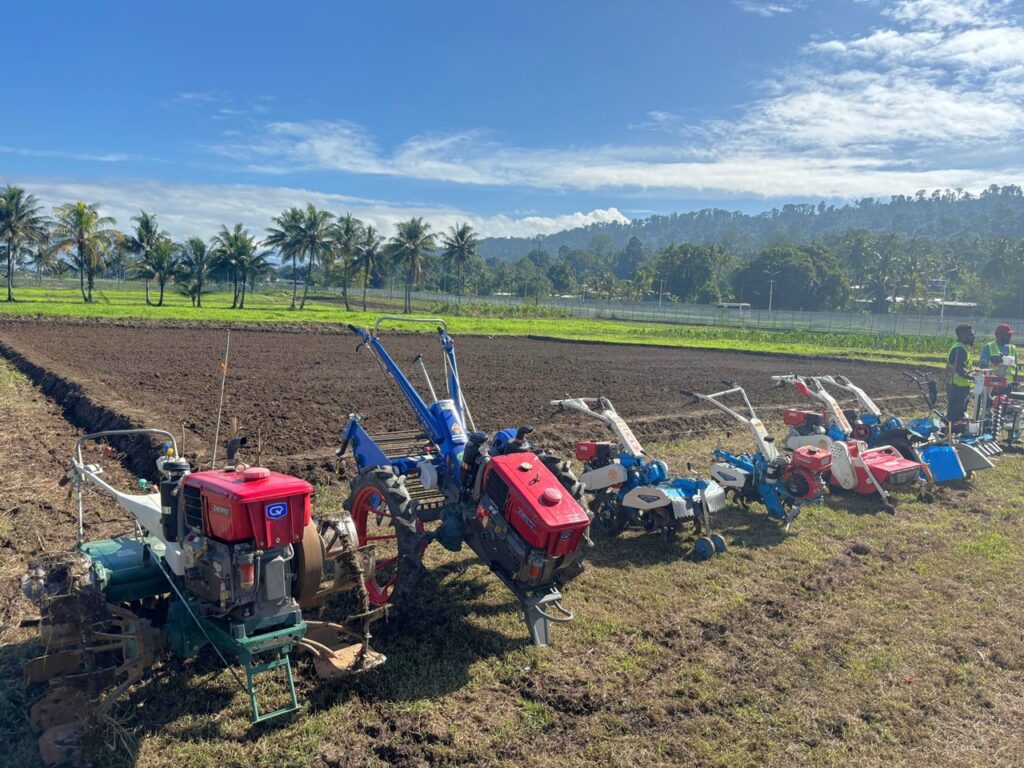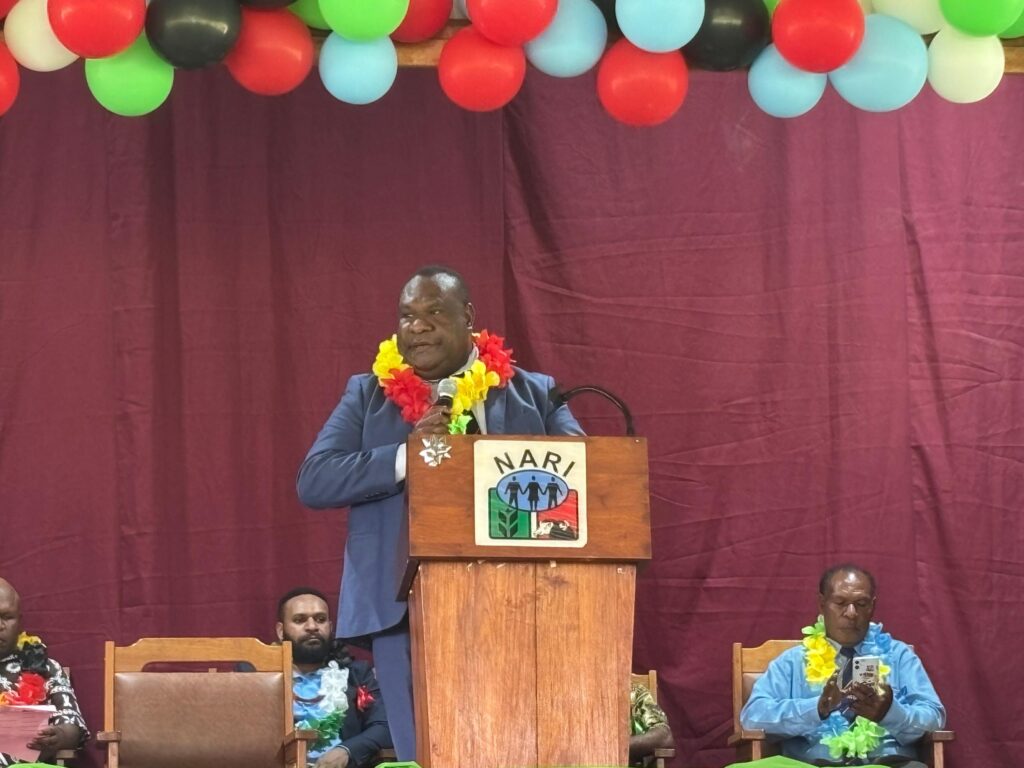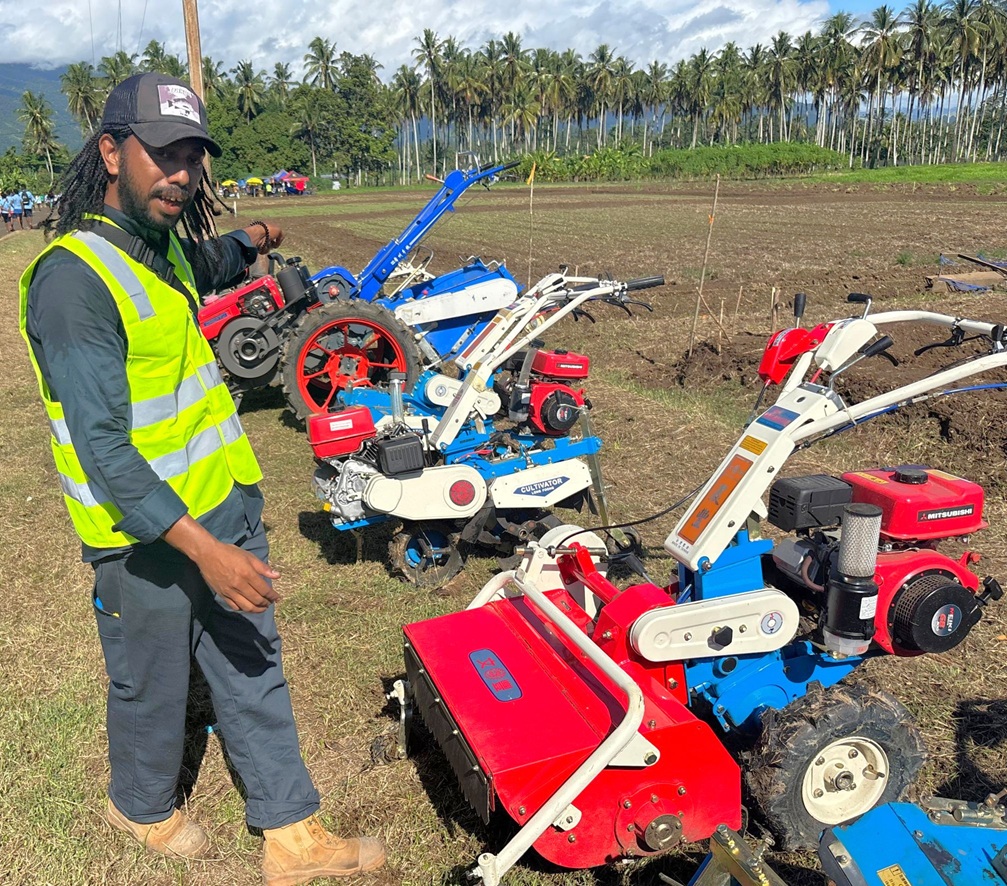Lae, Morobe Province | Wednesday, 28 May 2025 — As Papua New Guinea marks 50 years of independence, the National Agricultural Research Institute (NARI) is calling for a bold transformation of the agriculture sector — from traditional subsistence to fully mechanised, commercially driven farming.
Delivering the keynote address at the 14th NARI Agricultural Innovations Show at Bubia in Lae, NARI Director-General Dr Nelson Simbiken issued a clarion call for a “hard reset” of how agriculture is practised in PNG.
The event, held under the theme “Driving Commercial Agriculture through Research and Mechanisation”, drew hundreds of participants from across the country — including senior government officials, research scientists, farmers, students, private sector partners, and members of the international development community.
“We are calling for nothing less than a hard reset,” Dr Simbiken said. “For 50 years, our people have farmed the land with their bare hands. This has sustained households, but it has not built a modern economy. It is time to move from survival to surplus — from being spectators to becoming key players in rural economic transformation.”
Mechanisation: From the Ground Up
Dr Simbiken said that mechanisation must be the foundation of the next 50 years of agriculture in PNG, enabling farmers to scale up production, improve efficiency, and generate surplus income.
He proposed the creation of mechanical hubs at the ward, LLG, district, and provincial levels to provide training, maintenance services, and equipment hiring support — especially for those who cannot afford their own machinery.
“Mechanisation is not a luxury — it is a necessity,” he said. “We want to see our youth trained as tradesmen farmers — people who can operate, repair, and maintain equipment, manage irrigation, and help drive the rural economy.”



Science That Works for Farmers
With field demonstrations, machinery exhibits, and technology showcases, the Innovations Show demonstrated how NARI’s applied research is producing real-world solutions for PNG’s farmers.
Dr Simbiken highlighted innovations in climate-resilient crops, livestock feed, food processing, and mobile advisory apps, all designed to address productivity, food security, and market access.
“Research is not locked in laboratories. It is happening in the field. It is increasing productivity, improving food security, and raising rural incomes,” he said. “Our science is unlocking potential.”
A Digital Leap: New Data Services Centre Launched
Among the highlights of the event was the official unveiling of NARI’s new Agriculture Information and Data Services Building — a purpose-built facility that will support data-driven farming, smart advisory services, and evidence-based policymaking.
“This facility marks our commitment to modern farming. It will serve farmers, policymakers, and development partners with the information needed to plan, adapt and grow,” Dr Simbiken announced to enthusiastic applause from the crowd.
Policy Shift: Call for National Mechanisation Strategy
Dr Simbiken urged the national government to develop and adopt a National Farm Mechanisation Policy that integrates agriculture with vocational education, local governance, and SME development.
“We must take tools, knowledge and services back to the districts,” he said. “Let’s not bring everyone to Lae or Port Moresby looking for jobs. Let’s create jobs on the land.”
He said the strategy must empower local farmers to become skilled businesspeople, training others and building wealth within their own communities.
Adding Value from Farm to Market
Dr Simbiken also emphasised the need for value chain innovation, calling for investments not only in growing food, but also in processing, packaging, marketing, and export infrastructure.
“This is not just about growing more — it is about growing better. About linking farmers to markets, adding value at every stage, and building agri-based livelihoods that last for generations.”
A Launchpad for the Future
Dr Simbiken concluded by calling on all partners — from government to farmers, researchers to youth — to rally behind this national effort to modernise agriculture.
“This Agricultural Innovations Show is more than an event. It is a launchpad for the future — a future where districts become centres of innovation, where farming becomes a business, and where our economy is grounded in its greatest asset: the land.
“Let us mechanise. Let us commercialise. Let us innovate. Let us transform PNG — not from the top down, but from the ground up.”
The 14th NARI Innovations Show, held under perfect Morobe skies, stands as a milestone moment in PNG’s agricultural journey — powered by science, strengthened by partnerships, and fuelled by a nation ready to grow.
###
What a remarkable occasion on the 14th NARI innovation show, of agriculture transformation pathway to reach commercialization level for PNG in the next 50 years, where everyone is involved in this industry reiterating the well known slogan “ the backbone of PNG”. The term used in his keynote address by the Director Dr Simbiken “ mechanization “ is an eye catching driving force for promoting rural development.
I strongly encourage NARI to venture into commercial bargaining power thereby enabling government to inject funds into NDB for rural agricultural sectors financial capital for “ mechanization” right across the country. This is what modernizing agriculture to reach commercial level is all about where improving quality of crops are marketable. A giant consumer nation like China awaits for our agricultural produce to reach their shores in abundance.